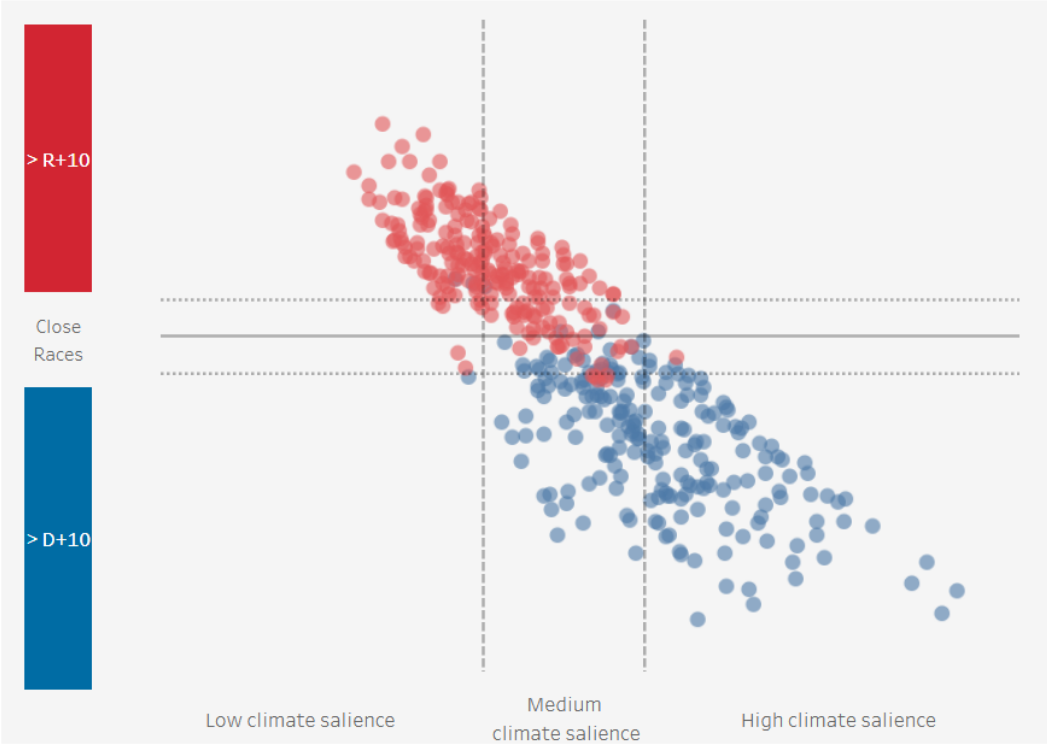US Election: Climate change and the voters
Published 2 October 2024
In partnership with American Conservation Coalition Action, a non-profit advocacy organization dedicated to mobilizing the conservative environmental movement, Stack Data Strategy asked a series of environmental and economic questions relating to the election in a recent national poll of 4,819 registered voters across the United States. The findings from this poll highlight how voters feel about both parties' ability to handle key issues in the election including:
Climate change is urgent for young people, regardless of partisanship
VP Harris still has a decided advantage over former President Trump on the issue of climate
Republicans have an opportunity to frame climate as an economic issue in the race against China
Urgency of climate change among voters
Climate change continues to be an important issue, with voters increasingly prioritizing it in their decision-making. Urgency around climate change is evident overall in our poll, as 65% of voters see it as a top concern. 46% of Republicans and 62% of Independents rate climate change as urgent, showing that this concern crosses party lines. These numbers suggest that Republican candidates who avoid the issue are out of step with a significant portion of their electorate. Voters aged 18-34 are particularly attuned to this issue, with 71% answering that it is a 4 or 5 on a 1 to 5 scale of how urgent climate change is, highlighting the longer-term importance of having a practical plan on the issue with this demographic group. Which according to the recent Harvard Youth Poll favors Kamala Harris by 31-points over Donald Trump.
Figure 1: Urgency of action on climate change, by party affiliation. Stack interviewed 4,819 registered voters in September 2024
37% of Republicans say they are “more likely to vote for a candidate with a plan to address climate change”, while only 15% would be less likely to do so. Among Independents, 44% are more likely to support such a candidate, while just 7% would be less likely. This data shows that having a climate plan is not a liability; in fact, it can attract a broad swath of voters, including those from traditionally conservative or centrist backgrounds. A climate study from CU-Boulder echoes this as its findings suggest that Republicans are losing 0.5% of the popular vote per year by not engaging on climate. Furthermore, with regards to Independents the study finds that, “the importance voters assign to climate change as an issue is one of the strongest predictors of voting behavior in the 2016 and 2020 presidential elections, especially in 2020, and especially among independents.” - reiterating the need for Republicans to engage more on climate change to win Independent voters.
Earlier modelling undertaken by ACC Action and Stack underscores this point: in the most competitive Congressional Districts, those clustered in the middle of Figure 2 below, over 1-in-5 voters cites climate change as one of their top three priorities when considering how to vote. Having a credible argument on climate change could make an outsize difference in which party holds the Speakership come January.
Figure 2: Climate salience by Congressional District ordered by polling advantage, from Stack/ACC modelling of 7,376 likely voters in April 2024
Bridging the gap for Republicans
While the Democratic Party is still seen as the most trusted on the issue overall, with 51% of voters placing their trust in Democrats, Republicans have room to carve out a role in the climate conversation.
A key way Republicans can address climate change without alienating their base is by focusing on China. Our poll shows that 60% of voters are concerned about China leading the U.S. in clean energy supply chains, and this concern spans both parties. Republicans are already seen as the party best equipped to handle economic threats from China, with 47% of voters trusting them more than Democrats, as well as 43% of Independents and even 12% of Democrats trust the Republican party more on this issue. By framing climate action in the context of competition with China—such as investing in American clean energy infrastructure—Republicans can engage voters on climate without appearing to adopt more progressive stances. Addressing climate change through an economic and national security lens could help Republicans gain ground on this critical issue.
While 46% of voters trust Republicans more to grow the U.S. economy, and 43% trust Democrats, Republicans hold a notable advantage when it comes to countering China. This economic concern can serve as a bridge for Republicans to talk about climate change, especially given that 60% of voters, including a large number of Republicans and Independents, worry about China's clean energy dominance. By connecting climate policy with economic competitiveness and supply chain security, Republicans can align their message with voters' concerns without risking alienation on environmental issues.
Democrat advantages and Republican opportunities
Democrats still hold an edge on overall climate issues. This divide is clear when voters were asked which party they trust to address climate change. Our data reveals that 51% of respondents trust the Democratic Party to address climate change, while 30% trust the Republican Party. A significant 20% of respondents are undecided, not aligning with either party on dealing with this crucial issue. This disparity highlights that while Democrats maintain a strong lead, Republicans could make gains by presenting a more detailed climate change strategy. Especially when it comes to younger voters as the previously mentioned Harvard Youth Poll also found that Harris has a 32-point lead over Trump on the specific issue of climate change.
This partisan divide is also seen among voters on health and the environment, as Republicans are behind Democrats there also. 50% of respondents trust Democrats more to protect human health and the environment, while 34% trust Republicans. But yet again, 16% of voters don’t trust either party on this issue, highlighting an opportunity for Republicans to engage with voters by offering a strong, concrete plan that ties environmental health to broader economic and security goals. Climate change might not be as central to Republican platforms as it is for Democrats, but there is room to grow by reframing the conversation to fit Republican strengths, such as economic leadership and national security.


